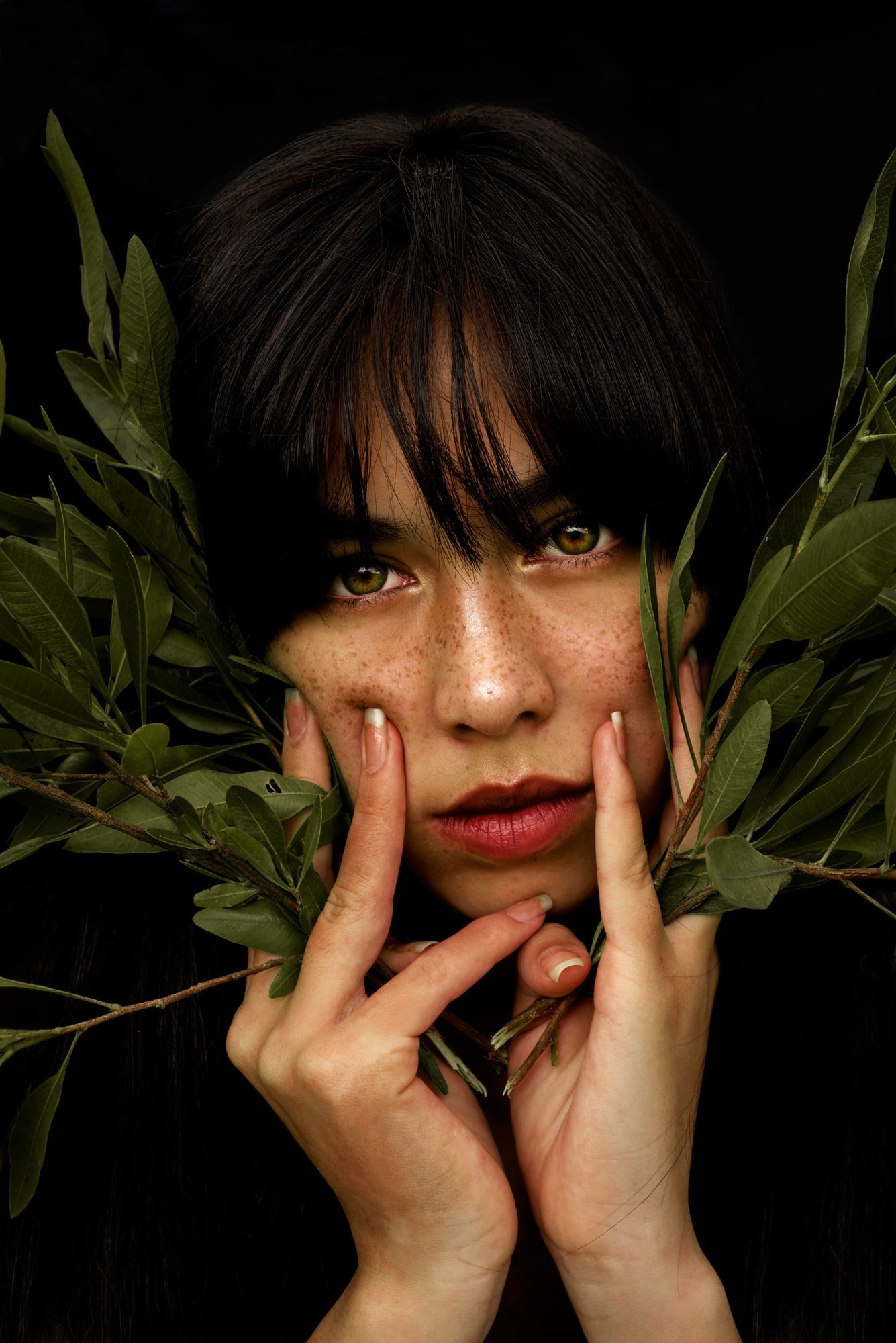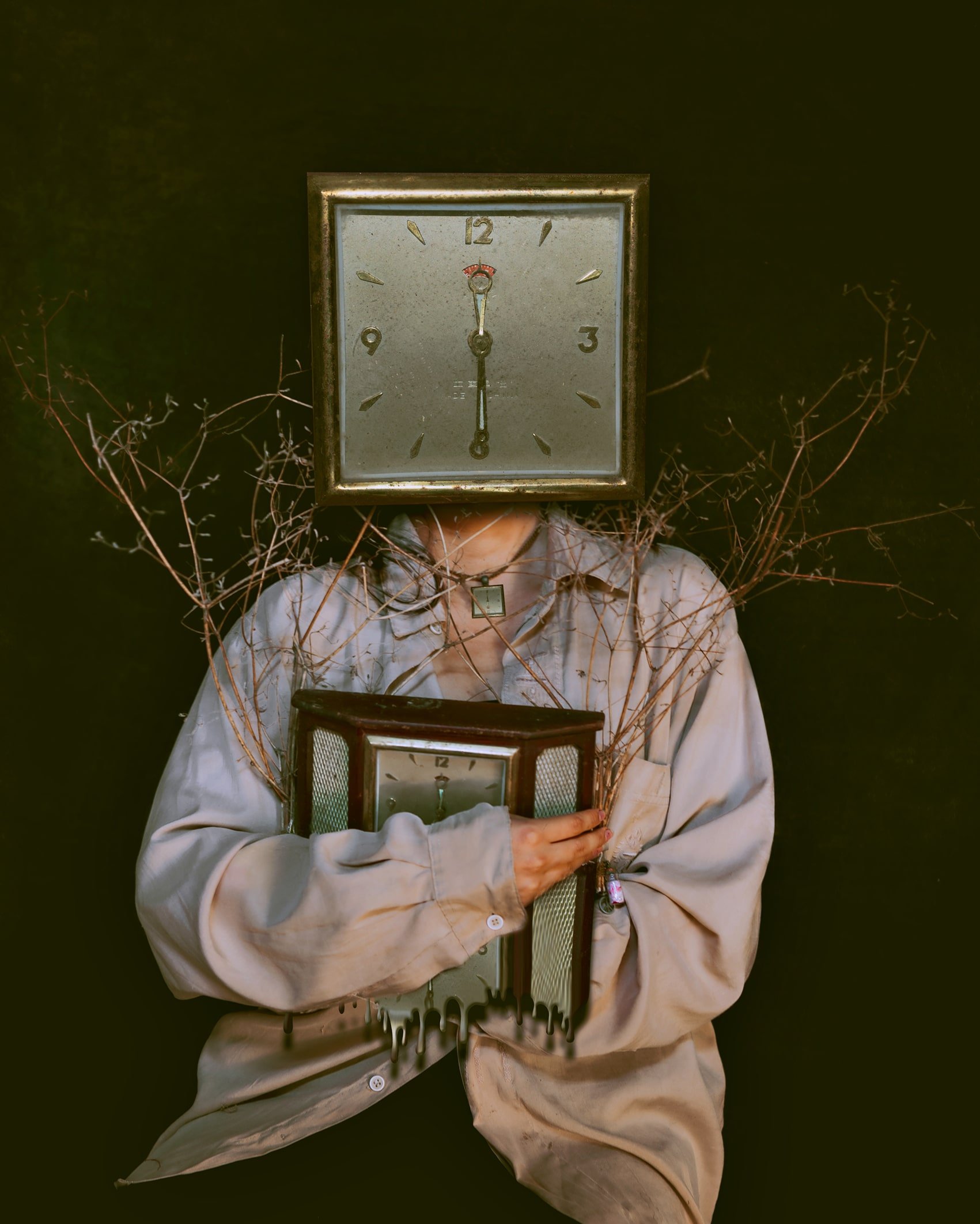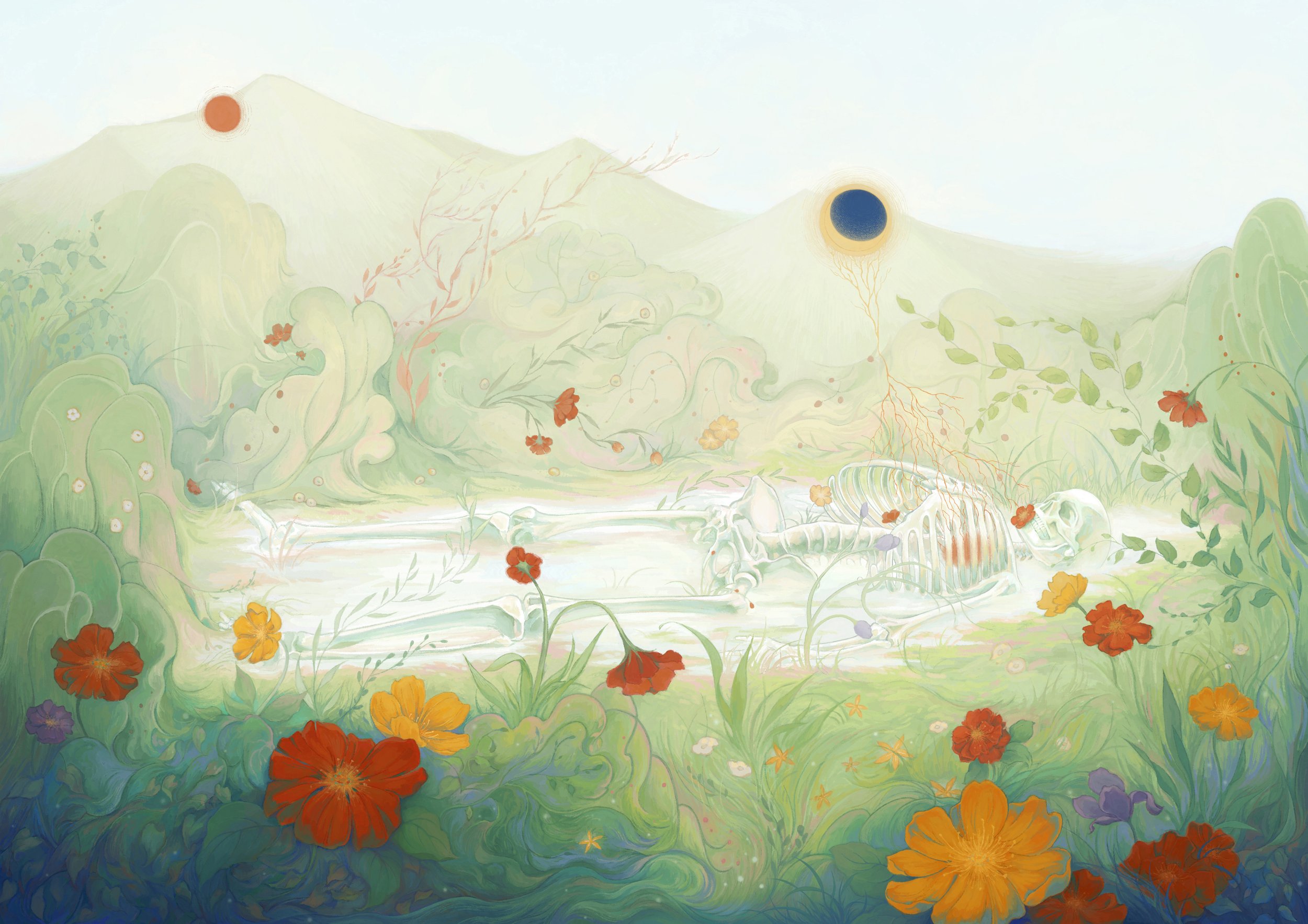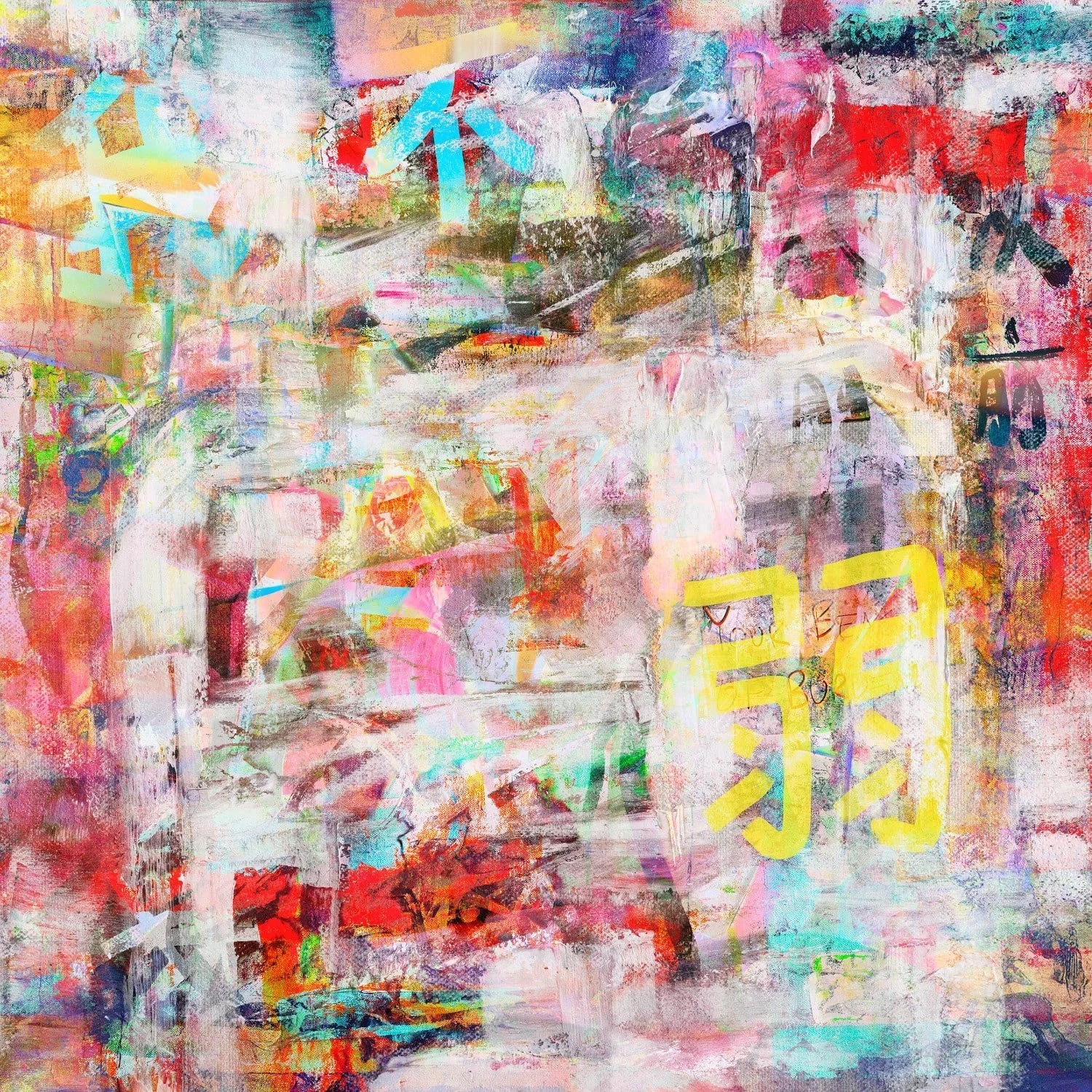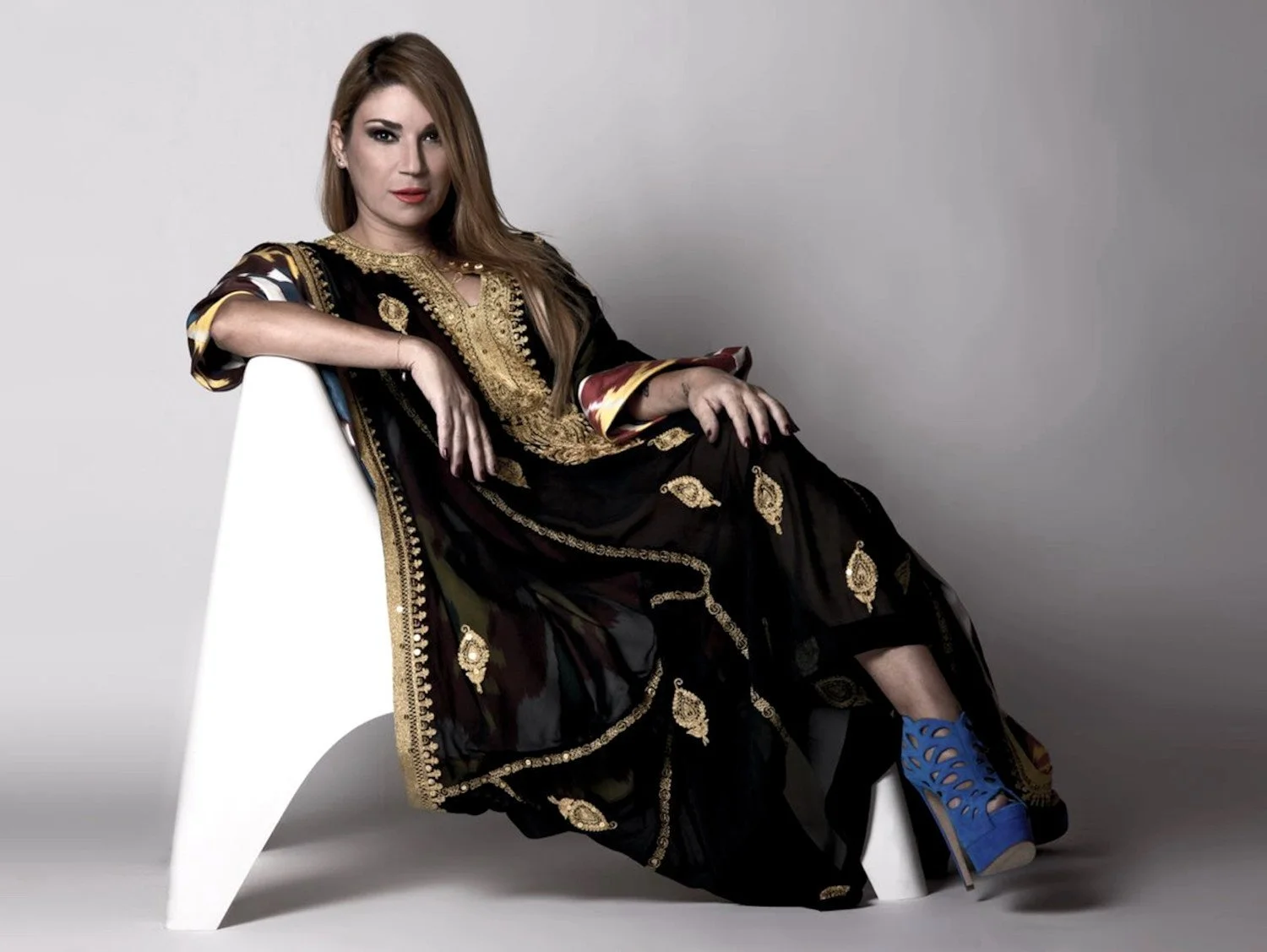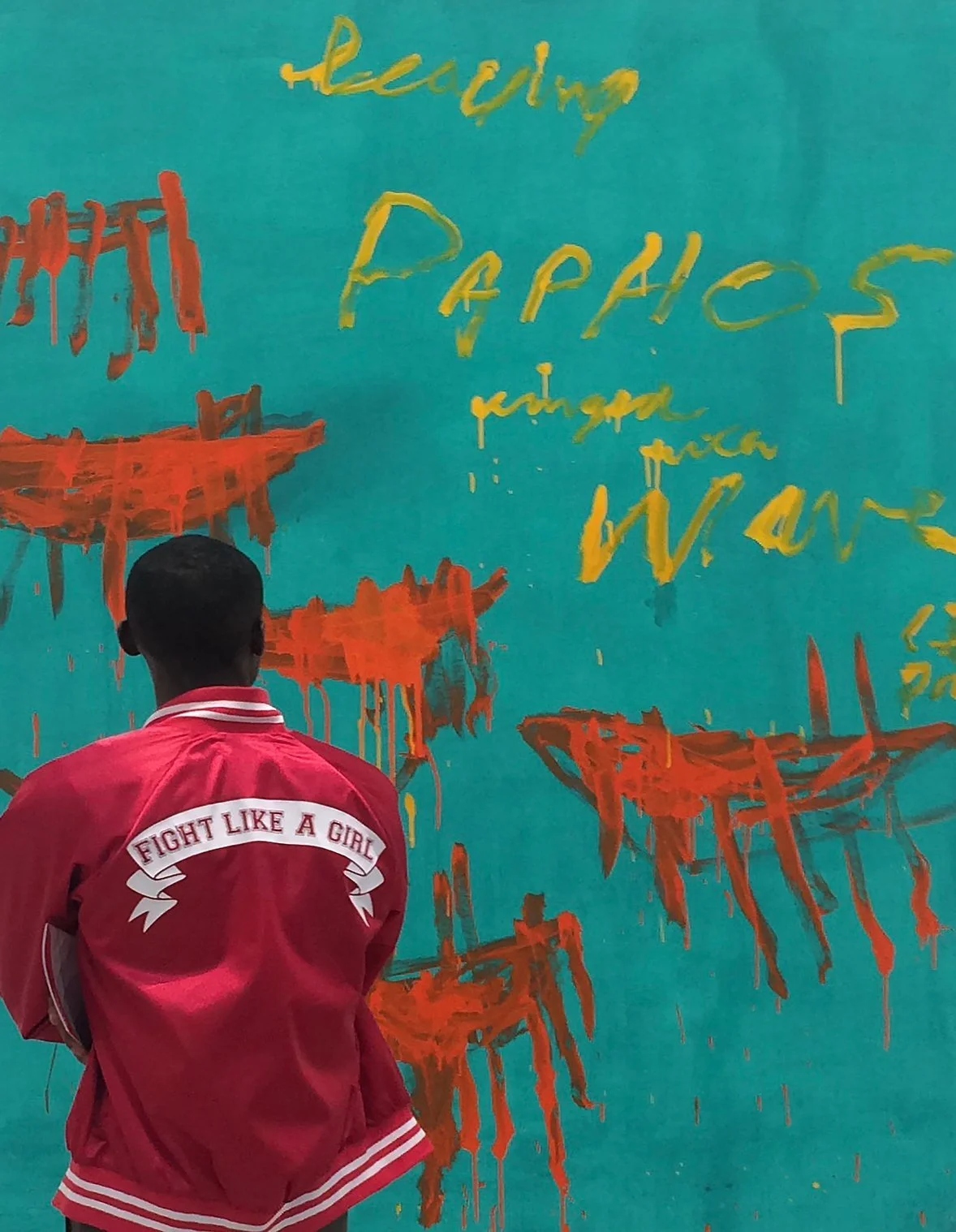10 Questions with Jhuliana Cueva
Jhuliana Cueva, or Jhuly Liz in the world of photography, is a self-taught Ecuadorian photographer dedicated to conceptual, landscape, portrait, and fine art photography. Winning exhibitor at the ASIRI FEST festival (2019; 2020), she is also an exhibitor at the National Theater Benjamin Carrion Mora in the city of Loja (2020; 2022), a solo exhibitor at the Alliance Française in the same city(2022), an exhibitor at the photographic exhibition Diafragma 1.2 - CIAF in Quito (2022), and a selected exhibitor for the 15th Caixas do Sul Photography Week, Brazil (2022). She is currently dedicated to the field of freelance photography, providing services of photography, editing, and sale of works and exhibitions.
Jhuliana Cueva - Portrait
ARTIST STATEMENT
Jhuly Liz expresses with digital and conceptual photography the different stages of her life, from her vision of her own existence to how she observes and interprets the world. Likewise, her works are based on everyday life and social criticism with the aim of conveying succinctly, thoughts of contemporary life.
Equilivrio, Inkjet print on Epson Enhanced Matte Paper 192 grams, 29.9x29.8 cm, 2021 © Jhuliana Cueva
INTERVIEW
First of all, introduce yourself to our readers. What is your background, and why did you decide to be a photographer in the first place?
Hi to all the readers of Al-Tiba9! My name is Jhuly Liz. I'm an Ecuadorian photographer dedicated to portrait, fine art, and conceptual photography. I began as an autodidactic while I studied at veterinary medicine school. My first contact with a camera was during a family vacation in Rio de Janeiro, I was the girl who immortalized those memories with this tool. Since then, I have gotten more into this world, and I feel safe because that saved me from mental illnesses like anxiety and depression. It's a way to express how I feel, while helping me process my emotions.
What is your aim as an artist?
My aim as an artist is to express myself and for people to identify in some way and not feel alone, this world is cruel, but empathy is a light for humanity.
How would you define yourself as an artist? And how did this definition change over the years?
Well, in the beginning, when I entered the world of photography, I asked myself the same question, what is it to be an artist?, because I didn't study at a university or take a course. For years I did not consider myself an artist because of the insecurity that this thought generated in me. Still, my mind changed when I had the first individual photographic exhibition of my work. At the opening, some people told me that they identified with the message of my work, and I was very happy with that feedback. It filled my heart, and for the first time, I identified myself as an artist.
Connect, Inkjet print on Epson Enhanced Matte Paper 192 grams, 18x24 cm © Jhuliana Cueva
Over Time, Inkjet print on Epson Ultra Smooth Fine Art Paper 250 grams, 29.9x37.3 cm, 2020 © Jhuliana Cueva
Let's talk about your work. Your series is based on everyday life and social criticism, as you mention in your statement. What messages were you trying to convey to the viewers?
The truth that exists in the world and that we sometimes forget because of banal issues.
What is the most challenging part of your projects?
The perfectionism in me. When a work in its final phase does not convince me of everything, I repeat the whole process again until I love it. Sometimes, creative blocks also arise, and I spend weeks or even months in a blank, but now I can say that with a couple of creativity generation exercises, I have not gone through that situation. As I said before, I use my photos as a canalizer for my emotions. Sometimes, making an artwork requires such a heavy mental effort that I have to leave the work for some time, but in the end, the result is worth it.
What do you see as the strengths of this project, both visually and conceptually?
The aesthetics of the work, the research involved in the realization of it, and the emotional weight it carries.
Realidade 2019, Inkjet print on Epson Ultra Smooth Fine Art Paper 250 grams, 10x15 cm © Jhuliana Cueva
Realidade 2021, Inkjet print on Epson Ultra Smooth Fine Art Paper 250 grams, 10x15 cm © Jhuliana Cueva
You mostly work with photography. Is there any other medium you would like to experiment with? What do you think of digital art and NFTs?
I would like to experiment with video dance. This year I experienced that world thanks to a workshop at an arts festival I participated in, and it changed my life to see that symbiotic relationship between audiovisual language and dance. I found it fascinating, and I won't lie to you, my head exploded. Digital art, for me, is incredible, and I admire people who are dedicated to that branch. Concerning the NFT, it seems to me a way for artists to earn as it should be with their work, although at the same time, I am concerned about the carbon footprint that leads to maintaining the world of the NFT.
And what are your thoughts on digital presentations and online exhibitions? Do you think they are here to stay, despite the end of the global pandemic, or were they just temporary ways to show works?
Digital presentations and online exhibitions are a way to show one's work around the world. It makes it easier to discover new and talented artists. I think it's been around forever, but I won't deny it, I prefer face-to-face exhibitions.
Dysmorphia, Inkjet print on Epson Ultra Smooth Fine Art Paper 250 grams, 26,6x40 cm, 2021 © Jhuliana Cueva
Do you have any new series or projects you are working on at the moment?
Yes, I will be marketing my work and selling prints for all the people who want my conceptual photography work mainly and uploading my artwork to the NFTs digital marketplace. I also have the creation of new artworks in process. To see the new updates, I leave my social networks like Instagram.
Finally, as we are already more than halfway through 2022, what are your goals for this year? And what have you achieved so far?
I want to grow professionally and artistically, expanding my work in other countries with exhibitions and opening an online store of my prints. I am also very happy to announce that I have my first international exhibition of "Transparent Experiences", a series of conceptual self-portrait photos that are inspired by the different stages of my life as an artist, my vision of my existence, and how I observe and interpret the world.

